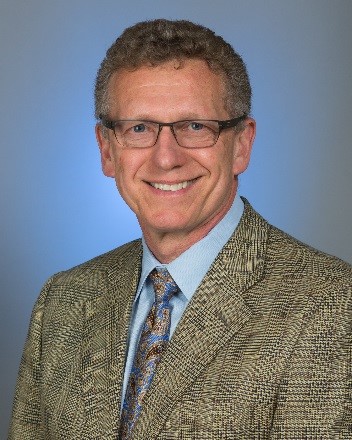Webinar Presentation: AI and Machine Learning: Turn Your Data into Actionable Insights
Analytics
Webinar Presentation: AI and Machine Learning: Turn Your Data into Actionable Insights
What challenges could you address if you were not limited by resources and computing power? What if you could also give users the ability to manipulate big data – at scale – to create artificial intelligence models? It’s time to put your data to work to support improved care and outcomes using data science and predictive analytics. Join this webinar to hear about solutions to reduce readmissions and improve patient satisfaction.
Speakers:
- Cole Erdmann
Director, Clinical Intelligence, Cerner Corporation
 As the director of Clinical Intelligence, Cole Erdmann is focused on the advancement of Cerner systems to better the development and deployment of intelligence and knowledge. He is responsible for the creation of systems to automate the intelligence behind population health programs to support the person and care team to improve outcomes. He makes an impact on clients by systematically enabling our clients with intelligence providing early detection of various types of risk, proposed actions to mitigate risk, and ongoing surveillance for future trends.
As the director of Clinical Intelligence, Cole Erdmann is focused on the advancement of Cerner systems to better the development and deployment of intelligence and knowledge. He is responsible for the creation of systems to automate the intelligence behind population health programs to support the person and care team to improve outcomes. He makes an impact on clients by systematically enabling our clients with intelligence providing early detection of various types of risk, proposed actions to mitigate risk, and ongoing surveillance for future trends.
- Dr. William Feaster, MD, MBA
Vice President, Chief Health Information Officer at CHOC Children’s Hospital
 Dr. Feaster is Vice President, Chief Health Information Officer at CHOC Children’s Hospital in Orange, California. He came to CHOC in 2012 as its Chief Medical Information Officer. At CHOC, he has guided the continued implementation of a fully integrated EMR for both the inpatient and ambulatory settings at CHOC. As a result, the organization has achieved HIMSS Stage 7 EMRAM certification as well as the Nicholas E Davies Award of Excellence in 2016 for utilizing health information technology to improve healthcare outcomes.
Dr. Feaster is Vice President, Chief Health Information Officer at CHOC Children’s Hospital in Orange, California. He came to CHOC in 2012 as its Chief Medical Information Officer. At CHOC, he has guided the continued implementation of a fully integrated EMR for both the inpatient and ambulatory settings at CHOC. As a result, the organization has achieved HIMSS Stage 7 EMRAM certification as well as the Nicholas E Davies Award of Excellence in 2016 for utilizing health information technology to improve healthcare outcomes.
- Navneet Srivastava
Senior Solutions Architect, Amazon Web Services
 Navneet, a Sr. Solutions Architect, is responsible for helping provider organizations and healthcare companies to deploy electronic medical records, devices, and AI/ML-based applications while educating customers about how to build secure, scalable, and cost-effective AWS solutions. He develops strategic plans to engage customers and partners, and works with a community of technically focused HCLS specialists within AWS. He is skilled AI, ML, Big Data, and healthcare related technologies. Navneet has a M.B.A from NYIT and a bachelors in software Engineering and holds several associate and professional certifications for architecting on AWS.
Navneet, a Sr. Solutions Architect, is responsible for helping provider organizations and healthcare companies to deploy electronic medical records, devices, and AI/ML-based applications while educating customers about how to build secure, scalable, and cost-effective AWS solutions. He develops strategic plans to engage customers and partners, and works with a community of technically focused HCLS specialists within AWS. He is skilled AI, ML, Big Data, and healthcare related technologies. Navneet has a M.B.A from NYIT and a bachelors in software Engineering and holds several associate and professional certifications for architecting on AWS.
- Janos Hajagos, Ph.D.
Chief of Data Analytics, Stony Brook Medicine
 Dr. Janos G. Hajagos is Chief of Data Analytics and Research Assistant Professor in the Department of Biomedical Informatics at Stony Brook University. He is the lead data scientist across several quality initiatives at Stony Brook Medicine and for the Suffolk Care Collaborative’s DSRIP award. Before his current position he was the Associate Director of Data Computation in the Division of Applied Informatics. There he was integral in several data analytic applications and the development of production web applications for the New York State Department of Health’s Medicaid Program. Dr. Hajagos has published and presented his informatics work at a range of national conferences. He received his PhD in Ecology and Evolution in 2005 from Stony Brook University. Dr. Hajagos's current areas of research in biomedical informatics can be divided into two areas. The first is applying machine learning approaches to quantify patterns of health care utilization. This includes the application of graph databases and algorithms to EMR and administrative health care data sets. The second is the application of semantic technologies to bridge disparate sources of information. Dr. Hajagos has been developing tools to adapt and utilize the UMLS to find novel links between basic science researchers and clinicians.
Dr. Janos G. Hajagos is Chief of Data Analytics and Research Assistant Professor in the Department of Biomedical Informatics at Stony Brook University. He is the lead data scientist across several quality initiatives at Stony Brook Medicine and for the Suffolk Care Collaborative’s DSRIP award. Before his current position he was the Associate Director of Data Computation in the Division of Applied Informatics. There he was integral in several data analytic applications and the development of production web applications for the New York State Department of Health’s Medicaid Program. Dr. Hajagos has published and presented his informatics work at a range of national conferences. He received his PhD in Ecology and Evolution in 2005 from Stony Brook University. Dr. Hajagos's current areas of research in biomedical informatics can be divided into two areas. The first is applying machine learning approaches to quantify patterns of health care utilization. This includes the application of graph databases and algorithms to EMR and administrative health care data sets. The second is the application of semantic technologies to bridge disparate sources of information. Dr. Hajagos has been developing tools to adapt and utilize the UMLS to find novel links between basic science researchers and clinicians.

